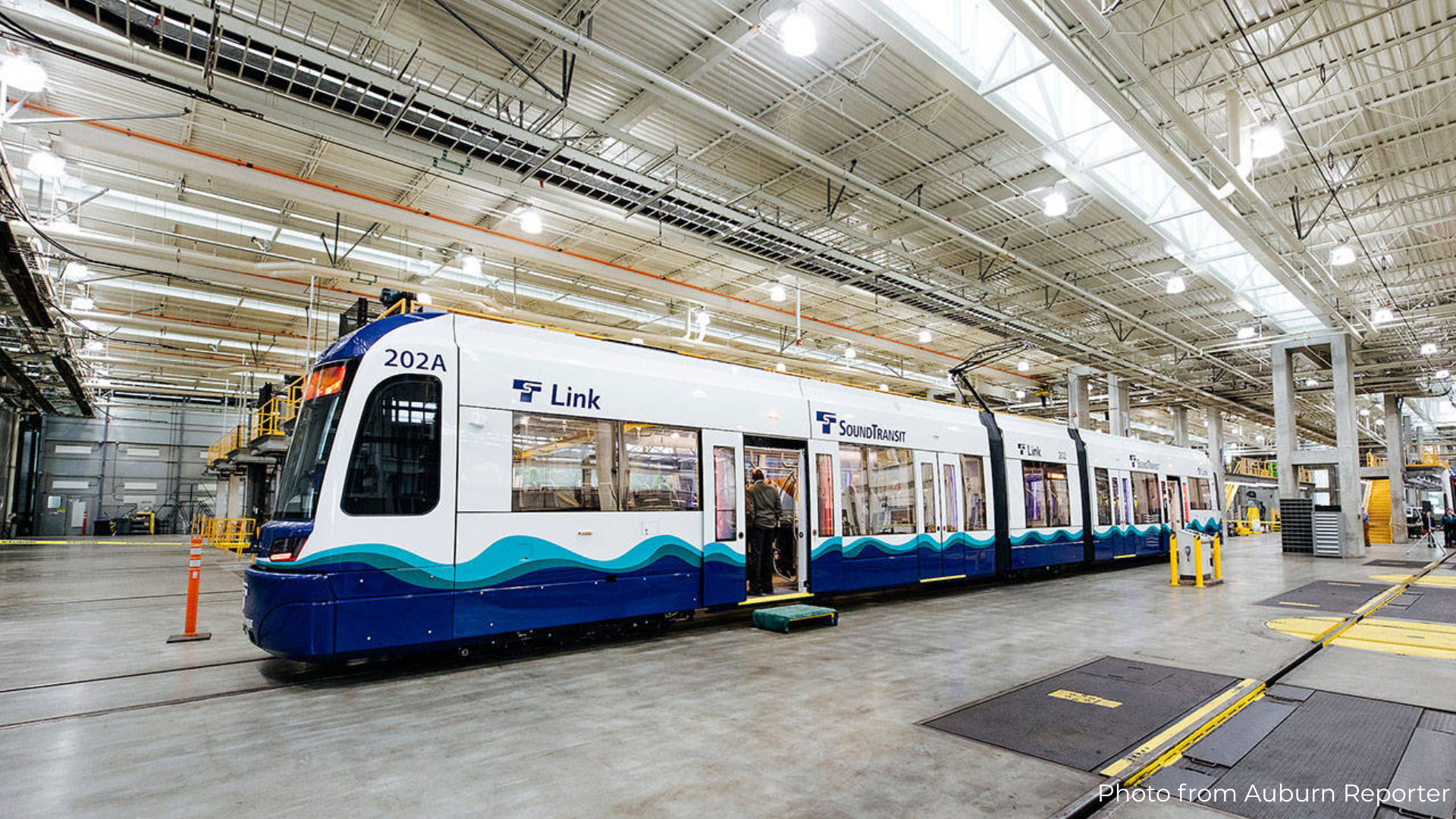Last week, the state Supreme Court finally ruled on the multi-million dollar class action car tab lawsuit against Sound Transit. They ruled against taxpayers and in favor of Sound Transit, with a vote of 7-2, declaring that the motor vehicle excise tax (MVET) statute Sound Transit helped draft is constitutional under Article II Section 37.
The MVET statute was passed in 2015, when Sound Transit approached the legislature for authority to increase the MVET from the existing 0.3% to 1.1%, as part of the Sound Transit 3 tax package. The request came in the form of Senate Bill 5987, which, once approved by the legislature, went to the ballot in November 2016. It passed and the rest would have been history, but then people in the taxing district started receiving astronomically high car tabs in the mail because Sound Transit was using MSRP rather than fair market values to calculate the tax on their vehicles. Each year since, lawmakers have tried to find a solution that would provide relief for taxpayers, since Sound Transit officials refuse to do so.
Separate from legislative efforts, a class action lawsuit was filed on behalf of taxpayers in 2018 and was transferred to the state Supreme Court in 2019 - Taylor Black vs Sound Transit (#52664-6-II). The plaintiffs’ attorney argues that the statute that passed in 2015 authorizing the car tab tax increase was drafted unconstitutionally and ran afoul of Article II Section 37.
Here is the language from the bill that’s in question (note the reference to January 1, 1996):
Notwithstanding any other provision of this subsection or chapter 82.44 RCW, a motor vehicle excise tax imposed by a regional transit authority before or after July 15, 2015, must comply with chapter 82.44 RCW as it existed on January 1, 1996, until December 31st of the year in which the regional transit authority repays bond debt to which a motor vehicle excise tax was pledged before July 15, 2015. Motor vehicle taxes collected by regional transit authorities after December 31st of the year in which a regional transit authority repays bond debt to which a motor vehicle excise tax was pledged before July 15, 2015, must comply with chapter 82.44 RCW as it existed on the date the tax was approved by voters.
This statute says that Sound Transit is authorized to impose the full MVET using a repealed and inflated valuation schedule from 1996 to calculate the tax, until bonds from the Sound Move and Sound Transit 2 MVETs expire in 2028. After 2028, the Sound Transit 3 MVET that remains will be calculated using the current vehicle valuation in law (passed in 2006), which runs closer to fair market values.
Article II Section 37 states, “No act shall ever be revised or amended by mere reference to its title, but the act revised or the section amended shall be set forth at full length.” The purpose of Article II Section 37 is “to protect the legislature and the public against fraud and deception.” It basically requires the legislature, when passing laws, to show their work and ensure full transparency before the public.
If a statute complies with Article II Section 37, it should be easy to understand your rights and duties without having to look elsewhere. As an example, if people look at current RCW 82.44, the valuation schedule that’s there is not the one that actually applies to their cars under Sound Transit’s MVET. The outdated depreciation schedule Sound Transit uses can be found in a 1999 version of RCW 82.44.041. However, the law refers to RCW 82.44 as it existed in 1996.
The lack of clarity in the authorization has lead some to think Sound Transit was intentionally vague, making it difficult for either legislators or voters to understand that car tab taxes would rely on a severely inflated vehicle depreciation schedule.
The majority opinion in the Supreme Court ruling argues that despite how poorly the law is written, the statute does not cause confusion or ambiguity – because the reader knows when each schedule will apply. Yet the problem isn’t so much “when” – but rather “what” and “how.” What are we being charged on car tabs? How is that calculated? To allow people to easily discern that, Sound Transit would have had to write out the full code – but didn’t. They simply referenced RCW 82.44 as it existed in 1996.
The reader would have to research the 1996 chapter 82.44 of RCW – which refers to other statutes and chapters, some of which aren’t even on the books today. The reader would have to figure out “which sections of the old statute are effective, which cross-references within those sections are effective, and whether to look to 1996 or current versions of those cross references.”
It is, in fact, extremely confusing to figure out what part of RCW 82.44 to look at to figure out what you’re being charged. Even the Department of Licensing used the wrong version for years, which was acknowledged last September when we uncovered Sound Transit was not using the schedule they drafted into law.
Twenty-four hours prior to the oral argument hearing before the state Supreme Court, we learned that the agency was using a repealed 1999 depreciation schedule, updated after the passage of Referendum 49 (and eventually replaced in 2006) – not the 1996 valuation schedule Sound Transit officials have claimed all this time they are compelled by law to use. This seemingly threw a wrench at the case - the state Attorney General’s office declined to participate in oral argument one hour prior to the hearing. Much of the hearing was spent discussing this discrepancy.
When confronted with this massive error, Sound Transit claimed in court that the purpose of the statute is not to allow taxpayers to calculate their taxes but to give Sound Transit the power to tax. However, the statute should still be understandable. A complete statute, under Article II Section 37, must “apprise those who are affected.” Sound Transit’s obscure reference to RCW 82.44, coupled with an inaccurate reference to a valuation they do not use to assess car tab taxes, makes it impossible for taxpayers, lawmakers, public agencies, and even the justices themselves – to understand how this policy impacts them.
The justices even confirmed in court that they could not figure out how Sound Transit imposed its car tab tax, and had to dig in old archives to find the answer as to which schedule was being used or what law lets Sound Transit use it.
Sound Transit’s lawyer defended the statute, saying “It’s not relevant to the analysis…as a matter of fact, it wouldn’t have mattered what year you put into the statute.”
This is a remarkable claim – that the year didn’t matter – and is quite opposite of the argument the agency has made up until this moment – that Sound Transit “has used the 1996 depreciation schedule since it began collecting the MVET in 1997, continues to use it today, and is legally required to use the 1996 schedule until the bonds to which the MVET are pledged are paid off in 2028.”
Sound Transit’s legal ties to the 1996 schedule were proven to be false, and that is really the heart of the whole case. The key issue is whether the 1996 schedule is being used as required by law, and the court was informed that Sound Transit is not using that schedule at all.
Bizarrely, the majority opinion claimed this glaring error is immaterial to the case, saying, “Sound Transit’s actions do not have any bearing on the constitutionality of the MVET statute itself.” The justices offer no rational explanation for this interpretation – they simply brush it aside in one paragraph, though this exact issue took over nearly the entire oral argument last fall.
That’s the part of the ruling I find most shocking and contrary to everything the public witnessed during oral argument. In a case that is fundamentally about the clarity and transparency of the law, Sound Transit repeatedly misrepresented which valuation method they had to use to calculate car tab taxes - while simultaneously claiming the car tab tax increase in statute was clear to anyone who read it. Yet when they were caught, Sound Transit officials said it doesn’t actually matter what the law says. The court ultimately echoed Sound Transit’s perspective in their ruling.




